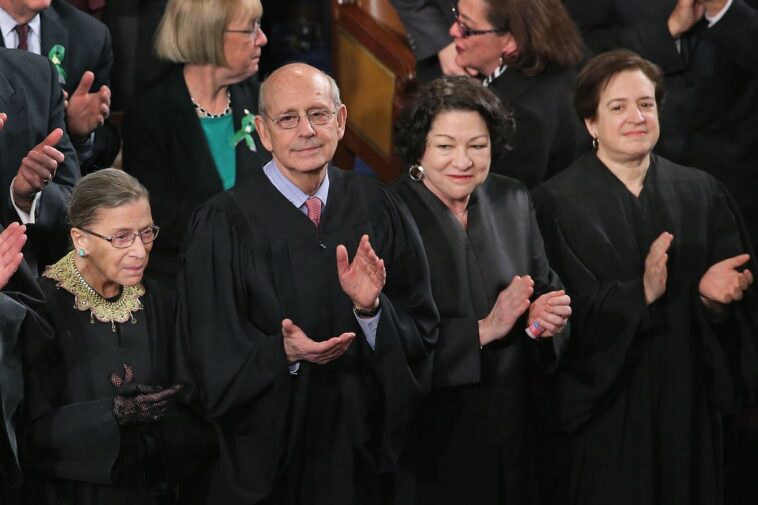/cdn.vox-cdn.com/uploads/chorus_image/image/31666303/161624396.0.jpg)
The Implications of the Supreme Court Ruling on Online Privacy Rights
The right to privacy has been a backbone of the American legal system since its inception. However, the rise of the internet and the increasing amount of personal information shared online have raised important constitutional questions about what exactly constitutes privacy in the digital age. Recently, the Supreme Court of the United States issued a landmark ruling on online privacy rights that has significant implications for all Americans. In this opinion editorial, we will explore these implications and what they mean for our privacy going forward.
Background on the Supreme Court Ruling
First, let us examine the specifics of the Supreme Court ruling. In a 6-3 decision in the case of Carpenter v. United States, the Court held that police must obtain a warrant in order to access a person’s historical location data from their phone provider. This ruling marked a significant departure from previous decisions that had allowed warrantless searches of such data based on the third-party doctrine, which holds that people have no expectation of privacy in information they voluntarily share with third parties.
Implications for Law Enforcement
One of the most obvious implications of the Carpenter ruling is that law enforcement will face new restrictions when it comes to accessing online location data. This ruling has the potential to impact investigations across the board, including those pertaining to terrorism, drug trafficking, and organized crime. It is important to note, however, that the ruling does not prevent the government from accessing such data altogether. Rather, it simply requires that they do so using proper legal channels, namely through obtaining a warrant.
Implications for Consumer Privacy
Perhaps the most significant implications of the Carpenter ruling are those related to consumer privacy. The ruling has essentially established the principle that individuals have a reasonable expectation of privacy when it comes to location data generated by their mobile devices. This is particularly important given the sheer amount of personal information that is shared online these days. The ruling indicates that just because data is shared with a third-party (such as a mobile phone provider), it does not automatically become fair game for law enforcement.
What Does This Mean for the Future of Online Privacy?
So, what does the Carpenter ruling mean for the future of online privacy in America? In short, it represents an important win for privacy advocates who have long been pushing for greater restrictions on government access to personal data. It sends a clear message that the digital age does not mean the end of privacy rights, but rather that we need to be more thoughtful and careful about how we regulate personal data online. In particular, it highlights the importance of ensuring that people have control over their own data and that they are able to make informed decisions about who has access to it and how it is used.
What Steps Can You Take to Protect Your Privacy?
Finally, it is worth considering what steps individuals can take to protect their own online privacy in light of the Carpenter ruling. Some potential steps include:
- Being mindful of what personal information you share online
- Using encryption tools to protect your online activity
- Disabling location tracking on your mobile devices
- Opting out of data collection practices when possible
Ultimately, the Carpenter ruling serves as an important reminder that privacy is a fundamental right that should not be taken for granted, even in the digital age. By remaining aware of the legal landscape surrounding online privacy and taking steps to protect our own personal data, we can continue to ensure that our rights are protected in the years to come.
Originally Post From https://www.nationalreview.com/bench-memos/this-day-in-liberal-judicial-activism-may-13-6/
Read more about this topic at
Travel Tips and Tricks – The Traveling Massholes
Discover the Best Places to Travel for Beginners

